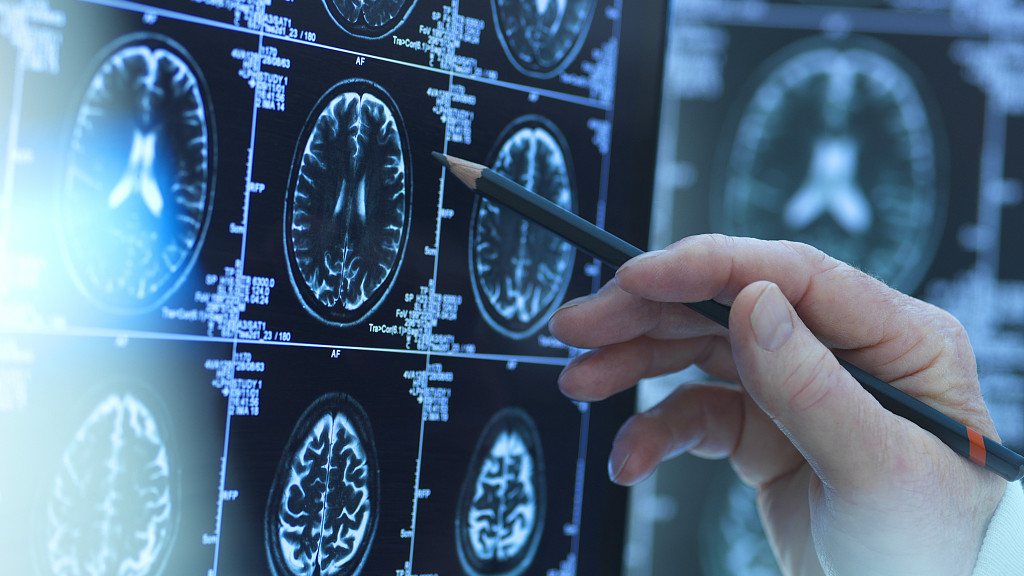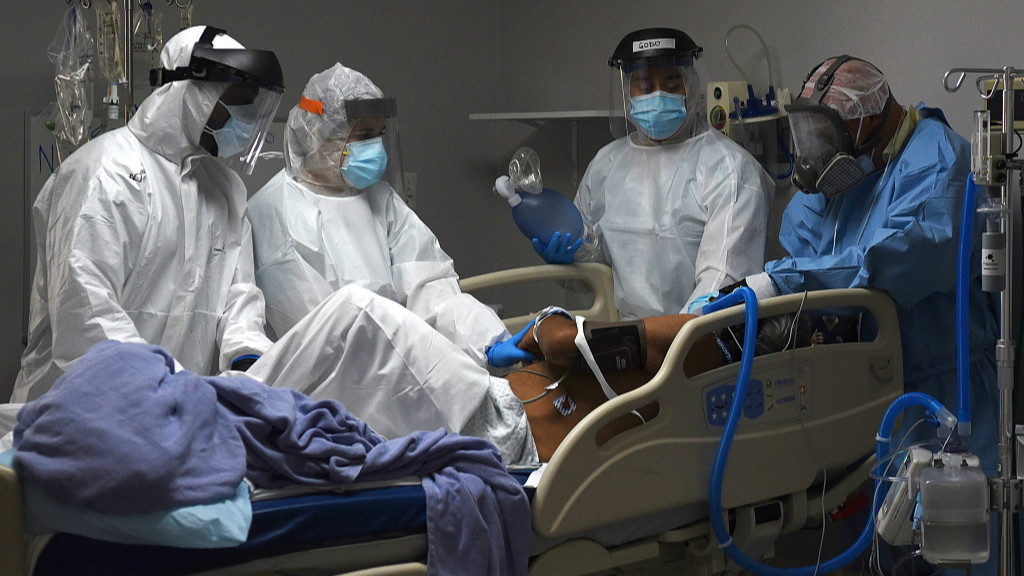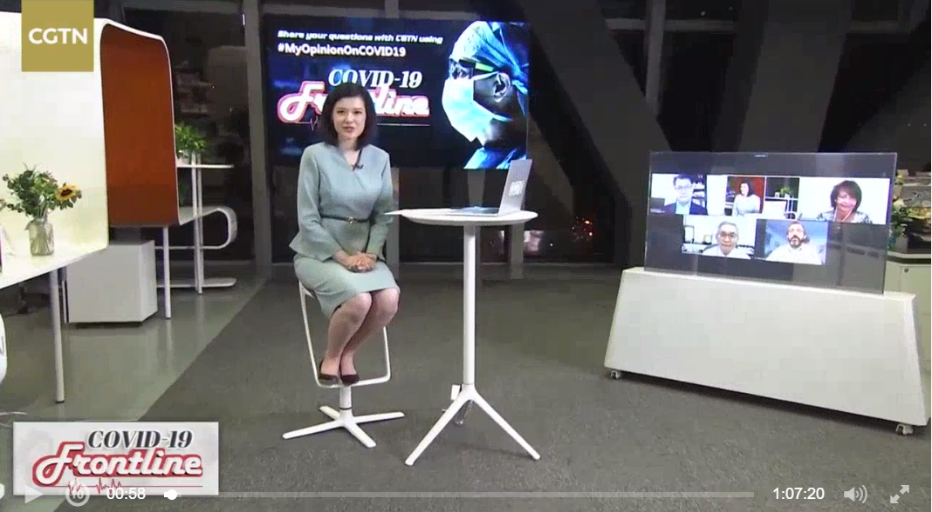Editor's note: On March 12, 2020, the World Health Organization (WHO) declared COVID-19 a pandemic, and as of Thursday (July 30), about 200 countries and regions have confirmed over 16,558,000 cases, according to the WHO. On CGTN's live program "COVID-19 Frontline," we invited workers and experts from China and other parts of the world to share their experiences and take questions from social media, in the hope of providing more information for those who are battling against the pandemic.
In the latest episodes of CGTN's live stream program "COVID-19 Frontline" held on Wednesday, July 29, CGTN invited doctors from Argentina, Brazil, and China to exchange their views on dealing with the new norm in cities around the world as the global COVID-19 cases have passed 16.5 million with over 656,000 deaths.
Live: Doctors discuss how to tackle 'new wave' of coronavirus

"COVID-19 Frontline" held on Wednesday. /CGTN
"COVID-19 Frontline" held on Wednesday. /CGTN
The long term health effects of COVID-19 infection
Dr. Omar Sued, president of Argentinean Infectious Diseases Society, asked about the long term health effects of COVID-19 infection.
Dr. Liu Shao-haei, president of Hong Kong College of Health Service Executives, answered that most of the cases in Hong Kong are mild, and longer-term follow-up is needed. There has been a third wave of COVID-19 in Hong Kong, which is very different from the first and second waves. The first wave was imported cases from the Chinese mainland before the Chinese New Year. The second wave of the epidemic came from western countries, such as The United Kingdom, The United States, Canada, and Australia. Most patients during the second wave were overseas students or migrant workers who returned to Hong Kong. Now there's a third wave of community transmission, and most of the confirmed patients are in vulnerable populations, including elderly people and people with bacterial myocarditis. They can stay sick for up to a month and a half. To date, 22 out of 3,000 confirmed cases in Hong Kong have been fatal.
Dr. Christopher Hui, consultant of Royal Free Hospital and the Royal Brompton & Harefield NHS Foundation Trust (Lung Division) in London, added that some critically ill patients do have neurological damage. Several patients have developed nerve damage, which is related to prolonged intubation and intensive care management. Cardiovascular and cerebrovascular injury, heart failure also needs to be considered in managing these patients. "I do think COVID-19 patients need to be followed up regularly for the long-term. We are starting data collection from these patients as soon as they are discharged from hospital to assure that they have very good access to health care," Dr. Hui said.
05:00

The challenge of Lacking ICU beds
Dr. Omar also said there are not many ICU beds in Latin America, and many patients have been in the ICU for more than 40 days. So he wondered how can ICU be used effectively?
Dr. Liu said that Hong Kong also faces a similar challenge, but it's the health authorities who need to formulate discharge standards. The data on COVID-19 patients needs to be collected. Discharged patients can stay in rehabilitation facilities or recover at home with help from a professional nurse. They also need to wear a mask and self check their temperature.
In Hong Kong, the hospitalized patients in stable condition will be transferred to "step-down wards" to ease the pressure on ICU beds. In the Chinese mainland, temporary hospitals were built to accept patients for the time being. But critically ill patients need to be admitted to the ICU. Discharge criteria should be established, and hospitals can't be run the way they used to be.
10:06

About COVID-19 testing
Marta G. Cavalcanti, infectious diseases specialist from Brazil, said testing is very important, but it is not realistic to detect most of the population. So she wondered whether the detection capacity needs to be increased? And how to detect asymptomatic patients?
Dr. Christopher Hui said the RT-PCR test, a nuclear-derived method, is mainly used in China and Europe. Antibody testing is problematic, but it's improving because there are more data samples now. Another problem is that current commercially available kits were drawn on a very limited number of patients, such as patients in intensive care. So the sensitivity of these kits is low. Therefore, the tests should be done repeatedly to break the chain of transmission.
Dr. Liu also added that health code could also help prevent the spread of COVID-19. But Hong Kong is a small city with a dense population of 7 million, it hasn't adopted the health code system. But it uses epidemiology criteria FTOCC (Fever, Travel, Occupation, Contact, Clustering). Also, Dr. Liu said Hong Kong is a dynamic city which won't be locked down. It is important to collect samples for early detection and diagnosis.

"COVID-19 Frontline" held on Wednesday. /CGTN
"COVID-19 Frontline" held on Wednesday. /CGTN
In later episodes of "COVID-19 Frontline," more frontline doctors and experts from China will join in to share their experience with their colleagues from other parts of the world. If you have any questions regarding COVID-19, you can share it with us using #MyOpinionOnCOVID19 on Facebook.
Videos by Zhang Rongyi
Cover image by Du Chenxin